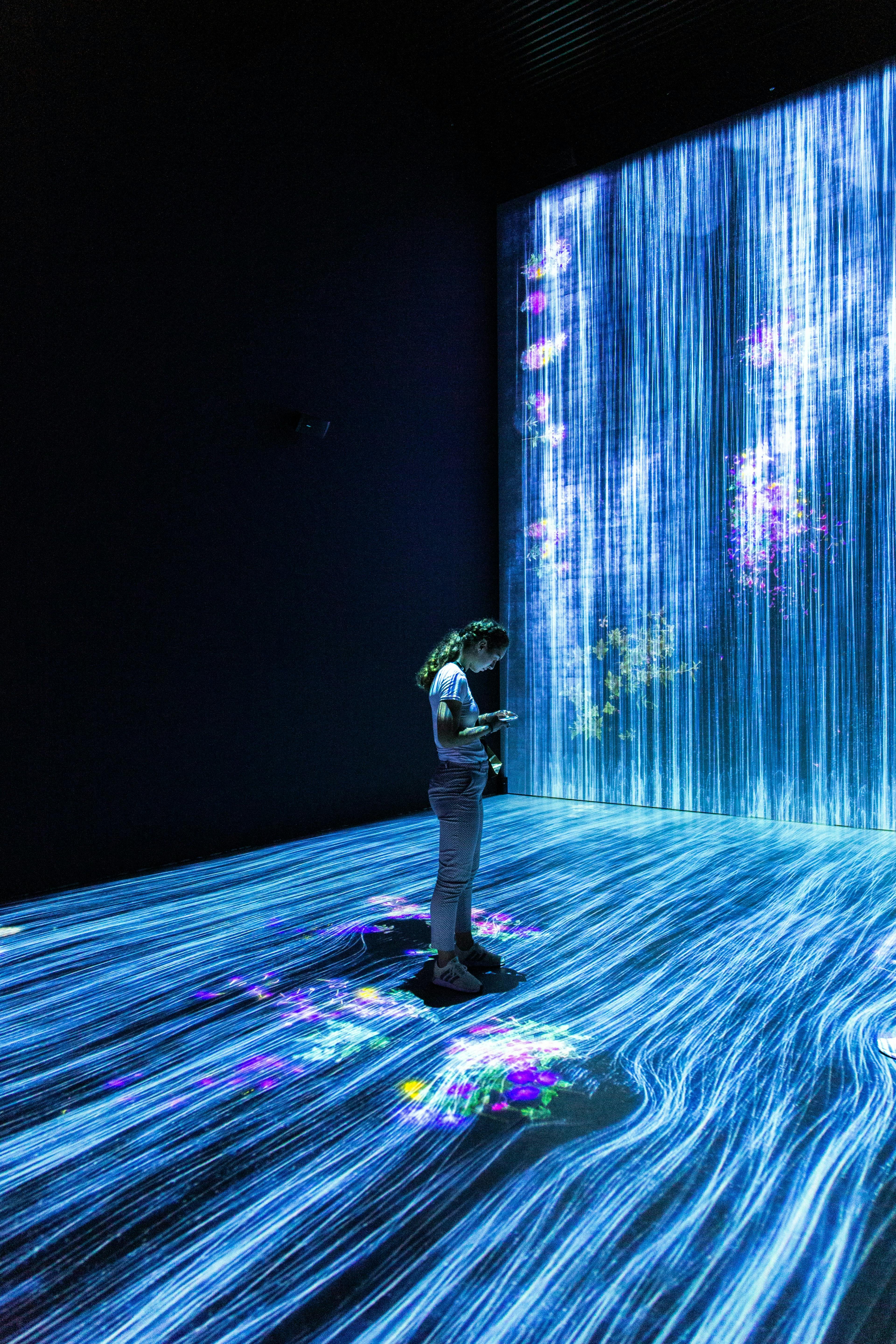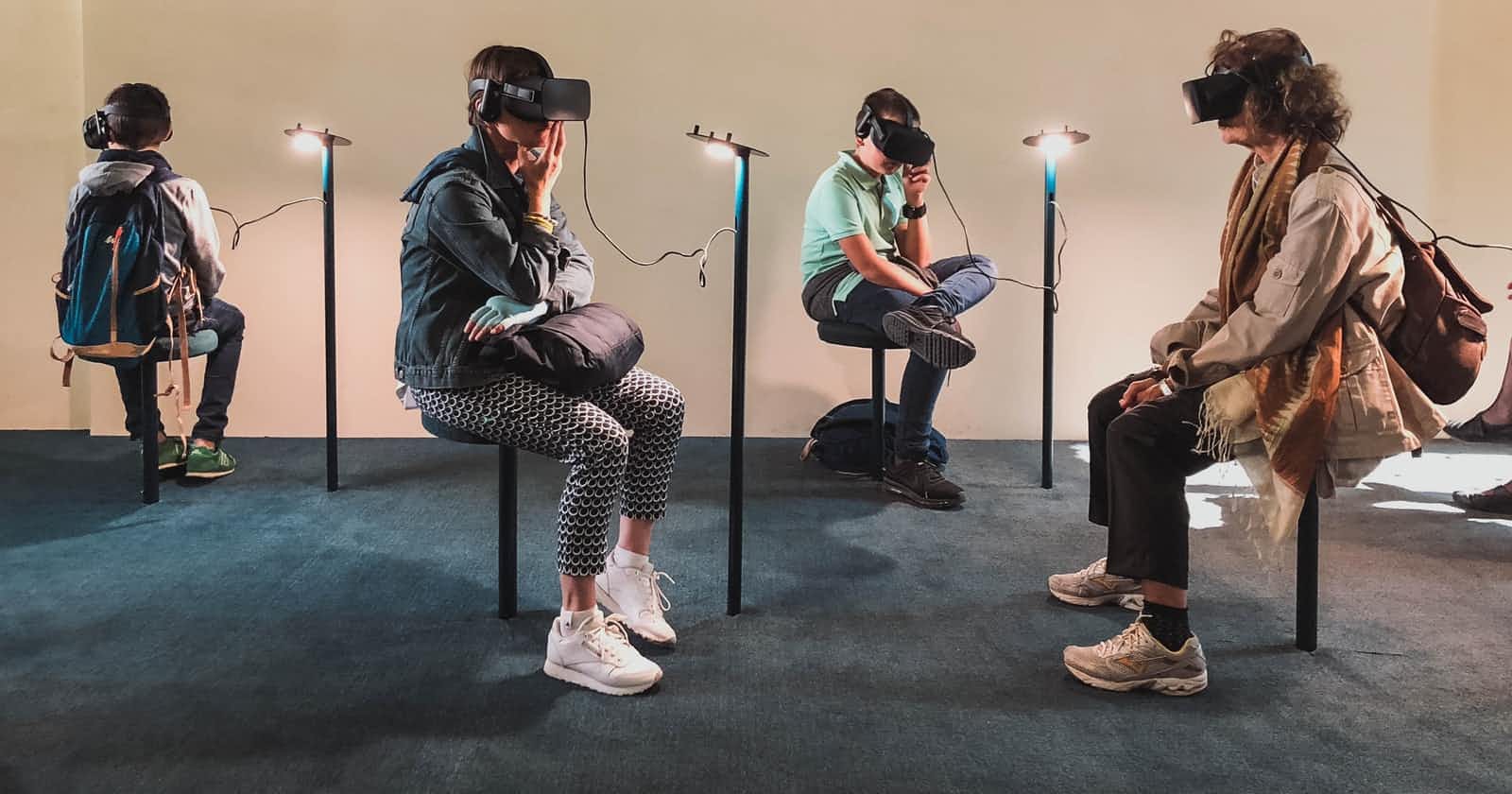
Photo by Lucrezia Carnelos on Unsplash
How The Metaverse Could Change The World Forever or How It Could Be The Next Technological Flop
Is the metaverse the next technological frontier or another wave of hype?
First was the personal computer revolution, followed by the evolution of mobile computing. It's predicted the next technological frontier could be an entire digital universe dubbed the metaverse. Powered by advanced computing and virtual reality, we could experience digital lives similar to video games inside the metaverse. This sounds far-fetched, so is it endless possibilities or all hype? Here are some ideas for how the metaverse could change the world and some ways that it could all be smoke and mirrors.
What is the metaverse?
The term metaverse was coined by Neal Stephenson in his 1992 science fiction novel Snow Crash. Since it has been depicted in other science fiction works like Ready Player One and The Matrix.
The metaverse is conceived as a digital world built on top of the internet. The idea is that people would create and inhabit digital worlds and interact with them as if they were the physical world. Currently, we consume the internet via screens. The metaverse would be an entirely immersive experience where you felt like you were inside of a new world.
For most people, the idea of a virtual world is still just a novelty or a gimmick. But for futurists and technologists, the metaverse will be the next big thing.

Photo by mahdis mousavi on Unsplash
The technology behind the metaverse
There are three components needed to make the metaverse work:
- Advanced computing power would allow for believable simulations indistinguishable from physical reality.
- Virtual reality headsets with high-resolution displays could project digital worlds in real-time and transport our minds into new environments.
- Software that knits the entire experience together creating the killer app that makes everyone want to join.
The largest companies in the world are working on bringing each of these pieces to market. Nvidia and AMD are using cutting-edge transistor technology from TSMC to build fast GPUs to power the visual experience. Meta's Oculus, Microsofts HoloLens, and Apple's rumored VR headset are racing to market. Finally, Meta has laid 10 billion dollars out to build the needed software.
How the metaverse could change the world
Imagine being able to go anywhere at any time, do anything at any time, with anyone you want? You could have different lives or experiences without ever leaving your home. You could escape your hectic life by living in a fantasy world instead of dealing with life offline. This type of technology has limitless potential for personal growth and development. It could be used for fun or for therapeutic purposes, which would help so many people get through their day-to-day struggles.
Some people may look at the metaverse and think it's just a bunch of computer graphics and sounds, but that couldn't be farther from the truth. The metaverse has the potential to change our world in many ways. Imagine being able to exist in a virtual world while also living in the real one. We could work inside the digital universe and travel to different planets without leaving home. We could even visit distant friends without spending any time on airplanes or worrying about traffic. It would allow us to live multiple lives in different worlds at once if we wanted to, letting us explore new places, meet new people, or live out our dreams.

Photo by Martin Sanchez on Unsplash
Is the metaverse all hype?
In the early nineties, the internet was a new and exciting thing. We all wanted to believe that it would change our lives and make things easier. However, most of the promise of the internet materialized over multiple decades. The early hype of the internet even caused a crash in the stock market known as the dot-com bubble. The metaverse is likely to follow a similar trend.
I'm not saying I don't think there's potential in the metaverse. I'm just not convinced that it will be groundbreaking enough to change the world immediately. Additionally, the promise of a wholly digital world raises a legion of questions.
- Is this just another way for companies to make money off of us by inserting themselves into this digital world?
- And if we did enter a digital world, what would happen when we need to come back?
- Will we have been disconnected from reality so much that we can't function in real life anymore?
- Would there be adverse outcomes for children who spent too much time in the metaverse?
- Finally, does anyone actually want to live their lives in a place that doesn't exist?
We should take a step back and really think about how the metaverse could change everything before jumping headfirst into it without fully understanding what could be on the other side.

Photo by Jessica Lewis on Unsplash
Conclusion
The concept of the metaverse is a new and exciting one. It certainly does have the potential to change the world, but it’s hard to know what the future holds. The best we can do is make predictions based on what we have experienced.
The internet went through an exuberance phase in the 90s, followed by a bursting bubble and eventually a plateau of usefulness after. I think it's likely is the metaverse takes a trajectory similar to the internet. Eventually, I believe there will be more virtual events, but we won't ever live entirely digital lives.
What do you think? Will the metaverse be a success or a flop?
